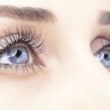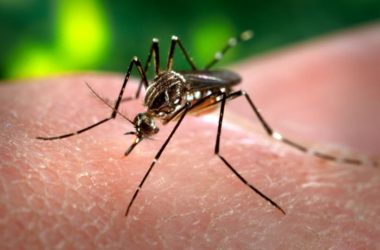Also known as hives, uritcaria is a condition wherein welts appear on the skin due to an allergic reaction to medications, the weather or something else. It may also be caused by many other things like a disease. Those inflamed pink or red bumps tend to be itchy, although individuals who suffer from hives may also complain of sensations such as stinging or burning.
The size of the welts that appear during a bout of urticaria may range anywhere from as little as the pointed tip of a ball pen to as large as a dinner plate. Welts may connect to one another to form bigger welts. The characteristic skin markings may appear anywhere on the body, including the face, ears, lips and even the tongue. Usually, the inflamed bumps disappear in less than 24 hours, although there are instances wherein the signs and symptoms take longer to go away.
Bouts of utricaria that lasts for 6 weeks or less is referred to as acute hives. On the other hand, chronic hives is the term used to refer to urticaria that lasts for over 6 weeks.
In severe cases, urticaria may leave a person disfigured due to prolonged and repeated swelling of the skin. There are times, although very rarely, when the welts appear in deeper tissues (angiodema) such as the tongue, throat and even the lungs. This can cause blockage of the airway and may put the life of the individual in danger.
Causes
Urticaria happens when plasma, the colorless component of the blood, leaks out of the small blood vessels due to a response to a chemical known as histamine. Released by special types of cells found along the blood vessels, histamine springs into action due many things such as allergic reactions, exposure to sunlight, insect bites, chemicals in food, physical contact with chemicals, and the intake of certain medicines.
In some instances, the condition is triggered by stress or even severe exercise. It’s also possible for urticaria to be caused by infections such as the common cold, as well as certain illnesses like thyroid disease and lupus. There are times when medical authorities cannot determine the exact cause of hives.
Signs and Symptoms
The various signs and symptoms of hives can happen in minutes after being exposed to the triggering factor — the weather, pollen, insect sting, latex, etc. However, delayed reaction that happens for over a couple of hours is possible too. These are the signs and symptoms you may experience during a bout of hives:
- Inflamed pink or red bumps on the skin called welts. They may occur alone or in clusters. It is possible for individual welts to connect to each other and form bigger ones. It is possible for some people with urticaria to develop welts on the same body parts every single time.
- Skin itchiness where the characteristic markings of urticaria are present. It is possible for the welts to also produce a stinging or burning sensation.
Diagnosis
To date, there are no specific tests designed for urticaria. What a specialist may do is ask many questions in order to pinpoint the exact cause of the condition. A primary care doctor, dermatologist, allergist and immunologist are the various medical experts capable of diagnosing and treating hives.
It is possible for skin tests as well as routine blood tests to be warranted. These are done, respectively, to identify the substance causing the allergic reaction and to determine if there’s a present systemic problem with the person. Sometimes, a specialist may also order a skin biopsy.
Medical Treatments
Antihistamines are the most common medications prescribed to a person suffering from the condition. Just like what they are called suggests, these medications are designed to hamper the physiological effects of histamine release. Antihistamines may be taken by someone with acute hives only as needed, although a specialist may recommend the regular intake of these medications for a person with chronic hives to keep the condition at bay.
A few other medications may also be prescribed by a doctor. They include dapsone (antibacterial), anti-inflammatory drugs (to ward off swelling and inflammation) and cortisones which are used on a short-term basis only because of the various side effects associated with long-term use.
Home Remedies
Other than the medications prescribed by a specialist, the following are some of the things that may help in preventing a bout of urticaria or attaining relief from the signs and symptoms:
- Avoid contact with the triggering factor
- Application of cold compresses on the welts
- Use lukewarm water and not hot water when taking a bath. Also, a mild soap should be used.
- Wear clothes that are loose-fitting and out of lightweight materials
- Avoid stress
- Stay in a cool room













